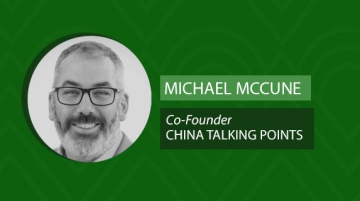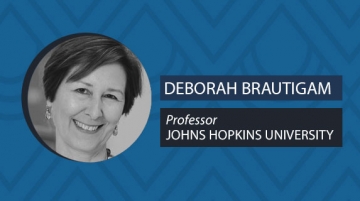
Saudi King Salman bin Abdulaziz’s recent state visit to Beijing is the latest evidence that China is manuevering to play a bigger role in the Middle East and Persian Gulf. The two countries reportedly signed deals worth upwards of $65 billion during the summit. Beijing’s plans for the region, though, extend far beyond just doing business and the Saudi kingdom.
Any country that vies for influence in the Mideast must first win the hearts and minds of the “Arab Street,” which explains why China is investing considerable diplomatic and financial resources in Egypt. Although the Egyptians do not have much in the way of natural resources, the country’s strategic location along the Suez and its disproportionate influence in Mideast politics are both very attractive assets to policy makers in Beijing.
Until recently, the U.S. and Europe have been the dominant foreign powers in the Mideast but now it appears their influence is beginning to diminish, providing a new opening for China. “This decade has seen an unprecedented surge in enthusiasm for the Chinese model of development in the Arab world,” said Sino-Arab researcher Kyle Haddad-Fonda in a recent article in World Politics Review. “As the American vision of democratic capitalism has lost its luster, many Arab intellectuals have turned to China,” he added.
Show Notes:
- World Politics Review: Egypt and Other Arab States Embrace a Chinese Model of Development by Kyle Haddad-Fonda
- World Politics Review: What Chinese Soft Power in the Middle East Reveals About Beijing’s Ambitions by Kyle Haddad-Fonda
About Kyle Haddad-Fonda Kyle Haddad-Fonda studies the history of China’s ties to the Middle East. He holds a D.Phil. in Oriental Studies from the University of Oxford, where he was a Rhodes Scholar. His dissertation research examined relations between China and Egypt and between China and Algeria in the 1950s and 1960s, highlighting the roles of Chinese Muslims and Arab leftists in mediating those relationships. He has previously held positions at Al Akhawayn University in Ifrane, Morocco, and the Center for Middle East Peace Studies at Shanghai Jiao Tong University in China.
Kyle Haddad-Fonda studies the history of China’s ties to the Middle East. He holds a D.Phil. in Oriental Studies from the University of Oxford, where he was a Rhodes Scholar. His dissertation research examined relations between China and Egypt and between China and Algeria in the 1950s and 1960s, highlighting the roles of Chinese Muslims and Arab leftists in mediating those relationships. He has previously held positions at Al Akhawayn University in Ifrane, Morocco, and the Center for Middle East Peace Studies at Shanghai Jiao Tong University in China.






